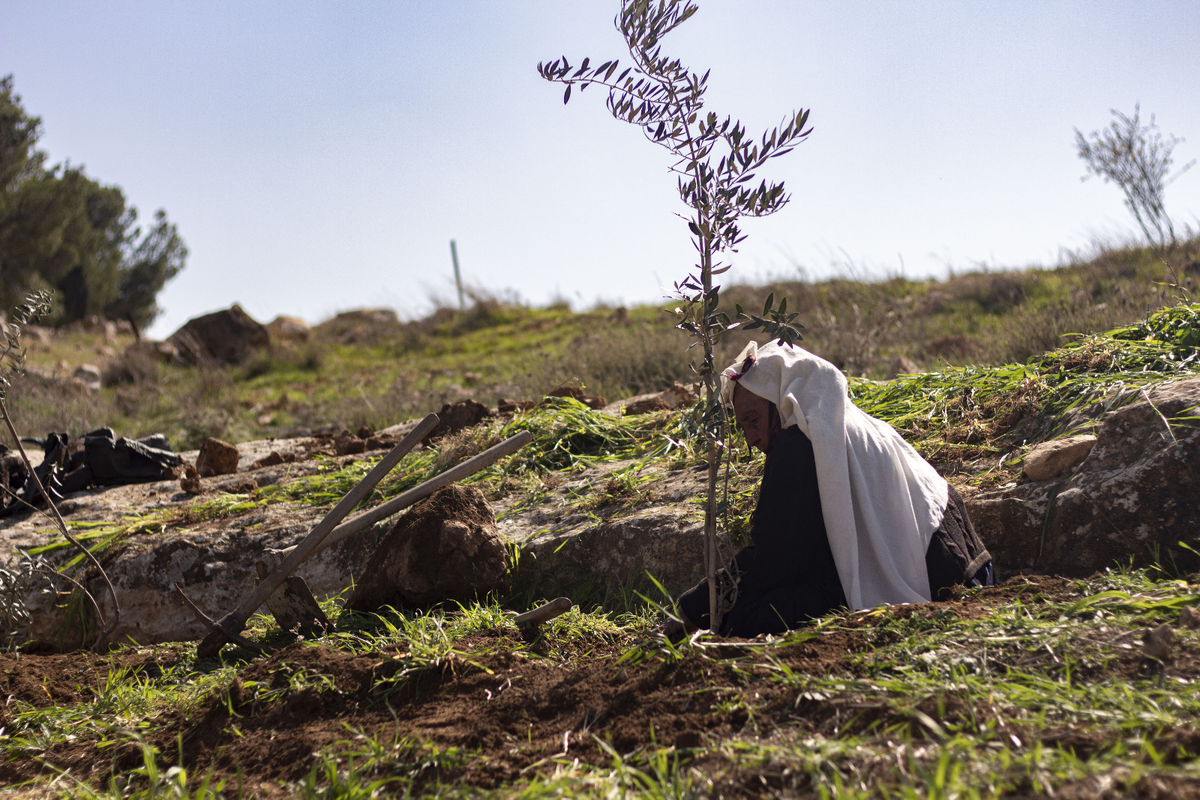Program Update Olive Tree
March 2, 2021 · 3 min reading
Learning Life in South Hebron
GSC, Youth of Sumud preserve lands in South Hebron Hills.

GSC Staff
info@goodshepherdcollective.org

Meaningful Resistance to Settler Attacks
On December 24, 2020, Israeli settlers uprooted and stole 34 olive trees from the Sumud Freedom Garden in Atuwani, including 24 trees provided and planted by Good Shepherd Collective and our international partners. In order to counter this attack on Palestinian land, GSC returned last week and planted more olive trees in the garden. This commitment to secure the land was lead by the local Palestinians and their centuries of experience in farming and protecting the land, even in the midst of near-constant attacks and destruction.
The Sumud Freedom Garden serves as the border between Atuwani’s remaining land and the area that has been colonized by the settlers of Ma’on and Havat Ma’on. The remaining holes where the uprooted olive trees once stood illustrate the settlers willingness to use physical force against Palestinian property. But they also served as a symbol for the reality of settler-colonialism, in which law is not a means to justice, but rather for the expansion of colonial control. The settlers chose to steal olive trees belonging to the people of Atuwani not because they are fundamentally unable to grow their own, or because they cannot afford to buy olive trees, but because their ability to continue to colonize land and appropriate Palestinian history depends on how effectively they can strip Palestinians of their resources.
This violence against property in Atuwani must be placed in the larger context of settler violence. Whether it comes in the form of attacks against children walking home from school, or baseless accusations against Palestinian activists designed to weaken their work, the threat follows the residents of the village in their daily routines. And yet, despite the endless challenges, Palestinians persist.
While the Israeli military bulldozes homes and stores, confiscates Palestinian resources, restricts their travel, and continuously works at displacement, Palestinians continue to resist—perhaps most importantly by teaching life. The traditional craft of olive tree planting, as the tree, is rooted in the connection to the land and its needs for a sustainable environment. As such, the Sumud Freedom Garden also stands in stark contrast to the monoculture of cherry trees in the settlement meters away. Unlike the olives which serve the communities needs, the cherry plantation follows the economic logic of exploiting stolen land for the maximum profit. Learning how to prepare the land for the olive tree from one of the village elders, in this light, was more than just learning the steps of planting a tree. Working together on the land, among local women, children, and dedicated activists, was a way to reconnect to the community's history and its roots.
Support
The Good Shepherd Collective rejects the model of large grants from liberal institutions because of the ways it can shape the work. Instead, we premise our work in the financial investments from individuals who believe in the future we're trying to build. Consider becoming a monthly donor.
Donate